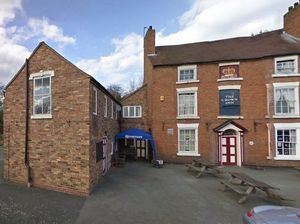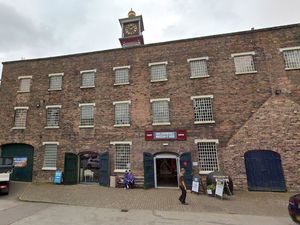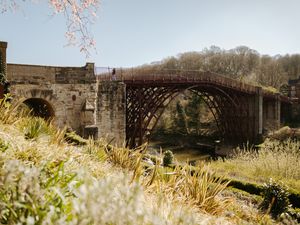Planning inspectorate backs council decision to refuse permission for new house next to former pub
The planning inspectorate has backed a council’s decision to refuse permission for a new house next to a historic former pub.

Building work to convert Ironbridge’s 19th-century Crown Inn into flats and build new houses behind it is nearly complete.
An application to add one more two-bedroom house to the left of the pub was refused by Telford & Wrekin Council last year.
Applicant Bob Dhanda appealed, but this week Government-appointed inspector Helen Hockenhull dismissed his case, finding that the proposed home would be “cramped and incongruous” and fill an open space that is “important to the character of the area”.
Ms Hockenhull writes that the new 12 homes on the site have planning permission and construction is “nearing completion”.
Mr Dhanda, she adds, applied to build the new house on land that “was previously approved as public open space”.
The Grade II listed Crown Inn, Ms Hockehull notes, “forms a prominent landmark within the street scene, its special interest being derived from its architectural features and its part in the social history of a community at the heart of a once-thriving industrial area”.
The site is also in the Severn Gorge Conservation area and the Ironbridge Gorge World Heritage Site, and Ms Hockenhull notes that, in coming to her decision, she had to consider the effect Mr Dhanda’s proposal would have on those.
“I note from the appellant’s evidence that historic maps show the presence of a small building on the appeal site between approximately 1880 and the 1960s,” Ms Hockenhull writes.
“However, it appears to have had a much smaller footprint that the dwelling proposed. It was, most likely, a further outbuilding possibly used for storage.”
She adds that the fact that there was previously a building on the site would not justify the planned house, “as the current context and setting of the listed building needs to be considered”.
Ms Hockenhull notes that Hodge Bower “is characterised by groups of terraced cottages and larger detached dwellings” and building in the open space “would remove an area providing some relief from this tightly-knit built form”.
“In support of the development of the appeal site, the appellant argues that the appeal site is redundant and has no viable use,” she says.
“I do not agree. It functions as an area of open space and, as I have outlined above, it is important to the character of the area.”
Dismissing the appeal, she adds that, if built, the new house would have an “overbearing effect” on a house immediately adjacent.



